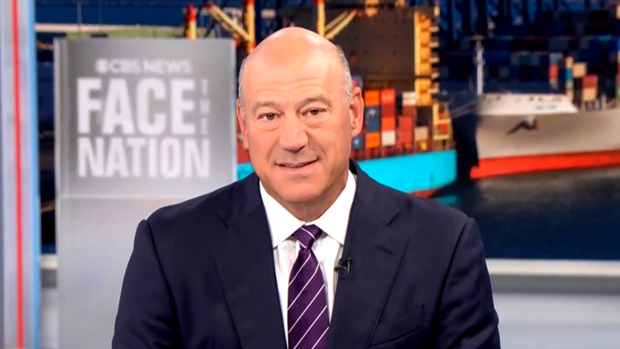Washington — Gary Cohn, IBM vice chair and former National Economic Council director in President Trump’s first term, said Sunday that “we’ve seen the job market degrade,” though he noted that it may be “temporary.”
“The Federal Reserve itself and the board of governors admitted that we are having a declining job market. And we see that,” Cohn said on “Face the Nation with Margaret Brennan.”
Last week, the Federal Reserve lowered its benchmark interest rate by 0.25 percentage points, in the first rate cut since December, amid slower economic growth and a stalling labor market. Fed Chair Jerome Powell, who has a dual mandate to ensure that both inflation and unemployment remain low, said “what’s different now is that you see a very different picture of the risks to the labor market.” And though Powell noted that he didn’t want to put “too much emphasis on payroll job creation,” he said “it’s just one of the things that suggests that the labor market is really cooling off.”
“That tells you that it’s time to take that into account,” Powell said.
Meanwhile the jobs numbers, which have shown an ongoing slowdown in the labor market, have been under scrutiny in recent weeks, as the administration has questioned the validity of the government data. Last month, President Trump fired former Bureau of Labor Statistics Commissioner Erika McEntarfer after a disappointing July jobs report.
Cohn pointed to job data on Sunday, saying, “over the last three or four months, we have gone from creating well over 100,000 jobs a month to creating less than 50,000 jobs a month.” And he noted that “I do think that we have seen companies cut back on the amount of employees they have.”
CBS News
The IBM vice chair outlined that when companies are put in a “very difficult environment,” with input costs going up due to tariffs and other reasons, and they’re unable to raise prices on consumers, “the one lever they can pull to make sure they keep their margins intact is they can cut down on the cost of labor.”
“We came out of a tough situation in COVID where companies were actually afraid about being able to attract and retain people, so they were hoarding labor,” Cohn said. “So we went from a hoarding labor situation to a situation today where companies are being very aggressive about managing their expenses, and the one expense they can manage is the cost of labor.”
Cohn said companies are now “letting their labor force decline naturally as people retire out of the labor system.” He said in the data, “I think it’s clearly showing up, and the Federal Reserve recognized that in this week’s action.”
Cohn said he didn’t think this change is specific to tech, but “across the board.” He noted that he’s “heard it directly from corporate CEOs in every business line that they have gone out of their way to cut their human capital overhead.”
On the rate cut more broadly, Cohn said “the Fed gave us a lot of important information this last week,” pointing to the rate cut, along with Fed officials providing their outlook, with projections of where they think interest rates are going. And he also noted that “what is also important is the committee was fairly unanimous,” acknowledging concerns about the independence of the Fed that have come to a head in recent weeks.
“I think the Fed clearly showed themselves to be independent thinkers,” he said. “They took into account all of the economic data, and they came out with a projection that made sense based on what is going on in the economy today.”
Source link

.jpg?width=1200&height=800&crop=1200:800)
